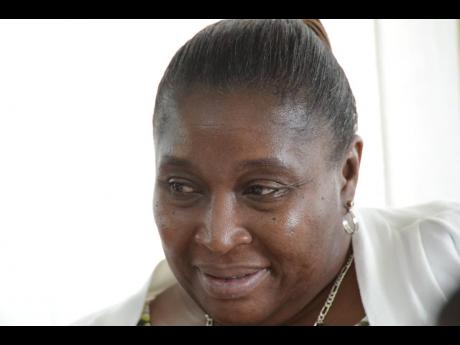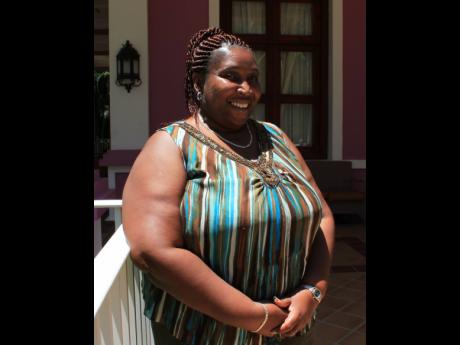NAJ president wants Gov’t to source areas of specialist training for nurses
WESTERN BUREAU:
The Nurses’ Association of Jamaica [NAJ] is acknowledging that while nurses and other medical personnel who go overseas for training should ideally return to Jamaica to impart their skills locally, in some cases many of them migrate because their chosen specialist areas are not offered in Jamaica.
NAJ President Dawn-Marie Richards made the observation in an interview with The Gleaner on Wednesday, while responding to a recent comment from Health Minister Dr Christopher Tufton that medical personnel leaving Jamaica for better opportunities is an undeniable reality.
“The recruiters are recruiting, so for every batch of nurses that are trained, some are going to migrate. Some persons are going to leave, and that is the reality we are faced with at this time. We also bear in mind that as Caribbean people, we are migratory by nature, so it has always been a situation where persons have been migrating for different reasons ... whether they migrate because they are recruited or because of family issues,” said Richards.
“One of the challenges we have is that there are some specialities in nursing that we do not offer here, and persons find it easier to go abroad if they want to specialise in those areas,” Richards continued. “It is easier to migrate and do it because you can work and pay for your course and get yourself sorted out.”
BETTER-PAYING JOBS
The issue of Jamaican nurses migrating to other countries, in many cases for better-paying jobs, has been a long-standing topic concerning the local health sector. Some 20-25 per cent of nurses apply to the Nursing Council of Jamaica each year for their certification to be validated in order that they may relocate to North America and the United Kingdom, among other territories.
In 2018, approximately 500 nurses left the local health system, followed by another 200 up to July 2019. In March 2023, a report from the Auditor General’s Department revealed that 1,514 nurses left the public health system between 2019 and 2021.
Richards noted that as part of efforts to retain trained nurses in Jamaica, the NAJ has proposed for the Ministry of Health and Wellness to source areas of specialist training that are not on offer in Jamaica.
“One of the things that the association has engaged the Ministry of Health and Wellness in is to do some sourcing of those specialist programmes that we don’t offer here in Jamaica, courses like rehabilitative nursing, oncology, and ophthalmology. Concerning those specialities that we work in but we don’t have the training for here, we have sought engagement with the government to see how best they can help us facilitate these persons,” said Richards.
“It will still mean going abroad, and we pray that when persons go, they will come back, but we think that if they get a scholarship, they should come back because it would have been a term [condition] of the scholarship.”
Her comments came a day after Tufton, in his keynote address at Tuesday evening’s launch of The University of The West Indies (UWI) Mona’s Global Health Initirantee that every class of 300 personnel that you train, within five years or so, maybe 200 are going to find their way, some may say to greener pastures, others may say to a more economically viable environment,” Tufton told Tuesday’s launch of the ative at its Western Jamaica campus, frankly stated that migration of Jamaica’s doctors and nurses is an ongoing reality since 1991 that must be acknowledged.
“Within Jamaica we have seen, since 1991, some 50 per cent of our clinicians, our doctors, migrating, and two-thirds of our nursing staff migrating. You can almost guainitiative, which is aimed at increasing and developing the health workforce through expansion of training opportunities in health programmes at UWI’s Western Jamaica Campus.
“There are some undeniable truths that we have to accept … the first that I see here is that we do train to export, and whether we accept it or not, it is a reality. We must be also assured, one way or another, that two-thirds of those whom we train are going to migrate, and we must actually be proud of it because it means that so many others want our people,” Tufton added.


